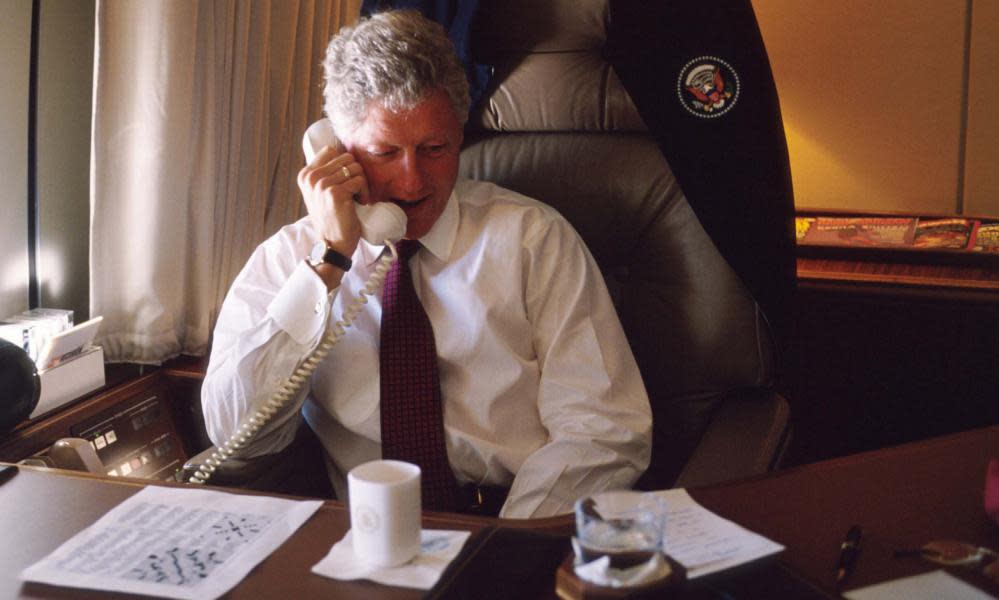Crossword blog: American puzzles – a word to the sceptical

Hello, sceptic.
What makes you think I’m a sceptic?
Well, you enjoy British crosswords, but you never look at American puzzles.
On the contrary! Since your feature on American cryptics, I look at the Nation every so often, and …
I’m not talking about American cryptics. I’m talking about regular American puzzles.
Oh, those. Well, of course I don’t solve them. Just like I don’t do wordsearches, or spot the differences.
You think that because they’re not cryptic, they’re simple.
They are simple. And they are simple because they have those grids that look like an “Arrow Words” in a Children’s Bumper Fun Puzzle collection, with hardly any black squares. All that extra crossing means they have to use proper nouns, which is something to be avoided where possible.
I’ll grant you that there are a ton of proper nouns in American puzzles – and that they can include unfamiliar confectionery brands, Midwest towns and TV stars.
And who wants to be made to feel ignorant about things that simply don’t matter? Even when it’s not a little general-knowledge quiz, the clues … well, they’re just definitions, like a not-so-quick quick. At least in the UK we don’t put setters’ names on concise crosswords.
But they’re not just definitions. Do you like Rufus’s puzzles?
I love them.
Then you’ll love the best of the US puzzles. They are brimming with cryptic definitions, usually terse and sly. ‘Starts a set’ (6); ‘Tubes in a studio’ (9); ‘Play group’ (4). And when they’re not allusive, they’re often alliterative.
That sounds acceptable to my sceptical ears. But I just can’t imagine enjoying a crossword where the answers aren’t words that you find defined in a dictionary.
That’s because you’re a construct, created by me, and I am phrasing your objections speciously.
So I should just … embrace all those abbreviations, suffixes and fragments?
Yes! Some of my favourite clues are for three-letter compass directions, or Roman numerals. Such as ‘XLV x IX’ (3).
I will! And since you’re putting words in my mouth, I now see things differently. If you will, embracing all of these pieces of language – from Latin tags to carnival slang – is of a piece with the age when the crossword was born. In 1913, you could see Duchamp’s bicycle wheel on a stool, or Picasso’s fragmented guitar; words, too, were drifting from their appointed roles. Artificial languages were sprouting and linguistic worlds colliding. The crossword – and especially the American crossword – is that extraordinary century’s tug-of-war between order and chaos, re-nosed as a game.
That’s a compelling view.
Not too flowery?
I wouldn’t put it quite that way myself. But that irreverence is there in the themes as well: try this LA Times puzzle (8 Sept) where, in six down entries, the word EIGHT is replaced by an O above another O.
I shall!
American themes can be gentle and unconcealed on a Monday, ranging through to, say, Friday’s Wall Street Journal competition, which is like a mini-Listener, with its own microculture.
Right you are, Alan. Like all straw-man ciphers, I’ve found that my arguments are bested by yours. All I can really do now is ask for some advice on how to get cracking.
Happy to help. You probably know that the New York Times is the ‘crossword of record’. Before you subscribe to that, you might want to try the ad-supported LA Times and Wall Street Journal, and indie setters including Brendan Emmett Quigley and Will Nediger.
And what do I need to remember?
There are no letter counts by the clues, so think about multi-word answers and abbreviations, which are usually indicated by an abbrev. in the clue itself. Titles should help with themes. And get used to entering ALOE and SMEE.
Thank you. Having served my rhetorical purpose, I suppose I may as well disappear with what might be clues as a ‘Pong preceder’.
Not quite yet. I also need to advise you to download software that works with Across Lite files, especially as the squares of American puzzles might contain multiple letters. One setter has even used video in clues.
[Ping!]
Reader recommendations of American non-cryptic puzzles are welcome.

 Yahoo News
Yahoo News 